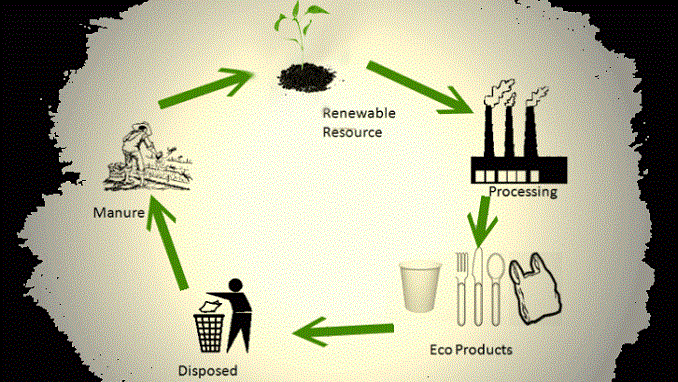
Biodegradable products are those that can be broken back down into their component parts over time by the action of biological organisms and processes. Paper and textile products are biodegradable, but traditional plastics made from petroleum bases are not. Consumer packaging and disposable eating products made of new biodegradable plastics from corn and other plant bases have numerous environmental and efficiency advantages over non biodegradable products.

Biodegradable Products and Landfills
The cost of landfills is high. In addition to paying for the land itself, the expense of preparing the land is also factored into the overall cost of opening a new landfill. That cost eventually gets passed on to municipal budgets and to you, the taxpayer. Waste products that are not biodegradable simply sit in landfills and take up space, essentially wasting your money. To make matter worse, most landfills do not provide the ideal environment for biodegradation. Biodegradable products may not be able to break down if there is not enough moisture and air. As a result, some landfills are being injected with water and microbes to enhance biodegradation. Diverting biodegradable waste from landfills by composting is another way to lower their cost and to make them more efficient. Composting provides the right amount of moisture and air to ensure that biodegradable products break down quickly.

Few major advantages of biodegradable materials:
(a) Compostability
Composting biodegradable plastics along with traditional biodegradable paper products and yard, food and agricultural wastes can turn this trash into rich humid material, which can improve water and nutrient retention and help grow healthier plants with less need for chemical fertilizers and pesticides.
(b) Less Pollution
Manufacturing biodegradable consumer products produces far less pollution. Because the products can break back down into nontoxic components, they don’t cause dangerous chemical leach out that can poison water or off gassing that can pollute the air. Biodegradable plastic consumer products produce 68 percent less greenhouse gasses than petroleum-based plastic products.
(c) Fuel Efficiency
The manufacturing of polylactic acid biodegradable plastic consumer products saves oil. Biodegradable plastic production processes take 65 percent less energy than required to produce petroleum-based plastics. Biodegradable products are made from renewable resources like corn, sugar cane and potato starch instead of oil: 200,000 barrels of oil a day are presently used in the United States alone in the manufacture of plastic packaging and significant portions of this use could be eliminated by employing biodegradable plastic products.

